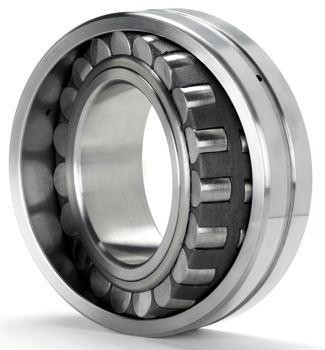High-temperature bearings need no lubrication
SKF has developed a series of bearings containing a graphite mixture that eliminates the need for grease relubrication, improving performance and cutting maintenance and downtime costs. The DryLube bearings are aimed at equipment operating in high temperatures in applications such as food production, mills and foundries.

Keeping bearings lubricated in environments where surface temperatures can reach 900°C can be challenging because the heat causes grease to degrade. The problems can be exacerbated by low operating speeds and by the effects of cooling water, scale and chemicals.
Bearings in such applications are typically lubricated using centralised systems to counteract lubricant losses and to prevent bearing failures. However, these systems drive up energy costs, consume large amounts of costly, high-temperature greases, and are prone to pipe blockages. Even when working optimally, centralised systems must apply large amounts of lubricant to compensate for heat-induced grease degradation. Also, the grease can accumulate on the bearing housings, posing fire and safety risks. Water-based cooling is needed sometimes, adding to the costs.
Although oil-air lubrication can be used, it is also not ideal because of the difficulty of forming good lubricating films, especially at low speeds. It is also costly to buy and operate.
In the DryLube system, the space inside the bearing is filled with an engineered graphite mixture. SKF says that this provides a cost-effective and efficient alternative to grease. Most SKF bearing types can now be supplied in DryLube versions that provide low, constant friction. They do not need re-lubrication, eliminating the cost and environmental consequences of conventional greasing programmes.





